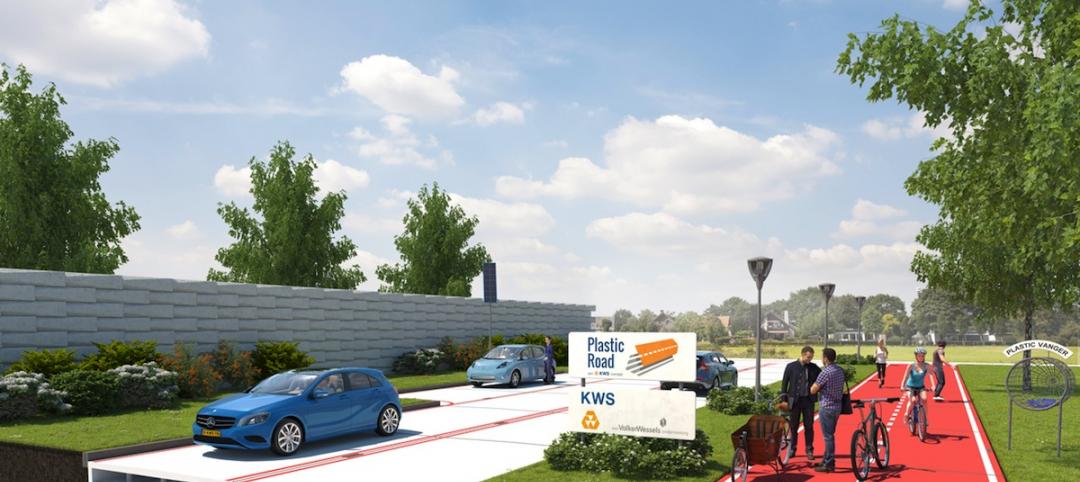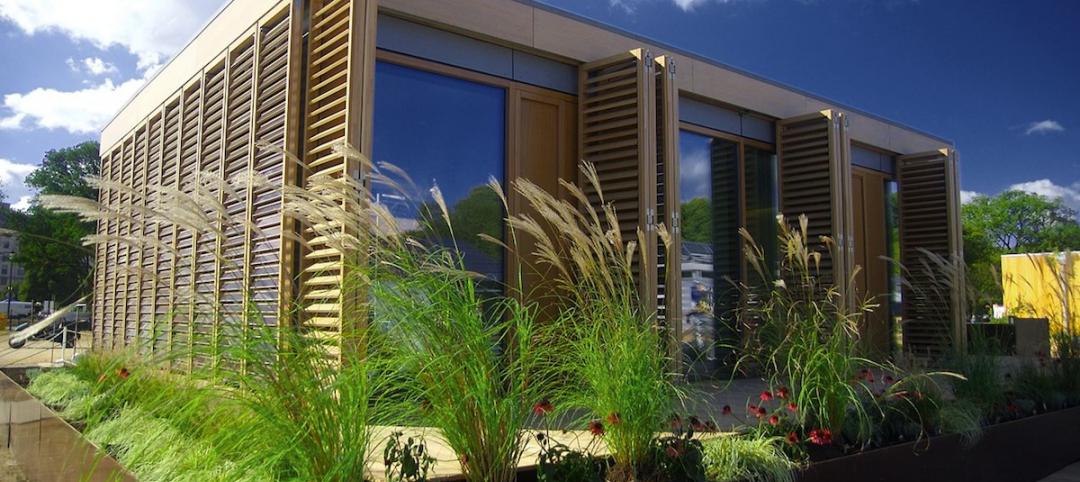The American Institute of Architects (AIA) has produced a report assessing the work of firms that are part of the AIA 2030 Commitment, a voluntary initiative to commit their practice to advancing the AIA’s goal of carbon-neutral buildings by the year 2030 that began reporting performance data in 2010.
The program has seen the number of buildings included in the report increase, but significant strides in crucial metrics used to predict building performance have been MIA. “These findings should serve as a wake-up call to architects that there needs to be greater urgency to drive improved energy efficiency across their project portfolios if we are going to reach our ultimate carbon reduction goals,” says Greg Mella, FAIA, Director of Sustainable Design at SmithGroupJJR and co-chair of the AIA 2030 Working Group, in a press release.
Highlights from the AIA 2030 Commitment: 2015 Progress Report include:
- 152 firms submitted reports – a 9% increase from 2014
- 2.6 billion gross square feet (GSF) represented in this data – a 8% increase
- 5,982 whole building projects have been accounted for in this report – a 37% increase
- 4,461 interiors only projects reported – a 16% increase
- 614 design projects are meeting the 60% energy reduction target – a 42% increase
- 38% average Predicted Energy Use Intensity reduction reported by firms – an increase of 1%
- 10% of total GSF meeting the previous 60% carbon reduction target – a decrease of 4%
- 4% of total GSF meeting the new 70% carbon reduction target
- 59% of total GSF using energy modeling to predict operational energy consumption – a 9% increase
Energy savings for the projects accounted for in the report is equivalent to about 21 million metric tons of greenhouse gas emissions. To put that into perspective, that is akin to powering 2.2 million homes for a year or running 6 coal-fired power plants.
2015 was the first year that firms used the new 2030 Design Data Exchange interactive tool that enables design teams to benchmark and target energy performance through a range of analytical aids to drive improved energy efficiency. Users of this tool are reporting that the ability to see immediate results on how their projects are performing has facilitated benchmarking and started conversations about efficiency options earlier in the design process. This has afforded them more ability to understand how the buildings will perform against baseline energy use.
For additional resources for architecture firms to develop greater high-performance building practices, click here.
Related Stories
Giants 400 | Aug 6, 2015
GREEN BUILDING GIANTS: Green building movement hits a new plateau, but the underlying problems remain
Today, the green building movement is all about eliminating toxic substances in building materials and systems and, for manufacturers, issuing environmental and health product declarations. Whether these efforts will lead to healthier products and building environments remains an open question.
Green | Jul 27, 2015
MUST SEE: Dutch company to test using plastic waste for road construction
KWS Infra is piloting a program to make roads from plastic garbage, including bags and bottles extracted from the ocean.
Codes and Standards | Jul 27, 2015
ICC, ASHRAE outline roles to consolidate IgCC and 189.1
"IgCC Powered by 189.1” will provide the design and construction industry with “the single, most-effective way to deliver sustainable, resilient, high-performance buildings," according to the trade groups behind the agreement.
Green | Jul 23, 2015
NASA: U.S. headed for worst droughts in a millennium
Data from NASA shows carbon emissions could be the driving force behind devastating water shortages and record droughts in the western U.S.
Sponsored | Metals | Jul 20, 2015
Life cycle assessment, and why you should care
LCA is a way of quantifying the environmental impact generated by the manufacture and delivery of a product.
Green | Jul 16, 2015
7 parking facilities first to earn Green Garage Certification
The new program rates parking structures based on 48 elements of operation, from water reuse to bicycle parking to car sharing options.
Smart Buildings | Jul 12, 2015
Office of Management and Budget asks agencies to consider climate change when budgeting for construction projects
For the first time, the U.S. Office of Management and Budget is asking agencies to submit budget plans that consider the effects of climate change on construction and maintenance of federal facilities.
Engineers | Jul 12, 2015
White paper explores low-flow toilets’ impact on drain lines, clogs
The research found that certain variables: toilet paper—along with the pipe slope and flush volume—are key variables in determining whether drain lines might be predisposed to clog.
Green | Jul 12, 2015
U.S. Green Building Council aligns programs with CALGreen
California has a new LEED certification path as the state struggles with drought.
Green | Jul 7, 2015
Philips sheds new light on growing fresh food indoors
A research center in The Netherlands is testing the latest techniques in urban farming.
















